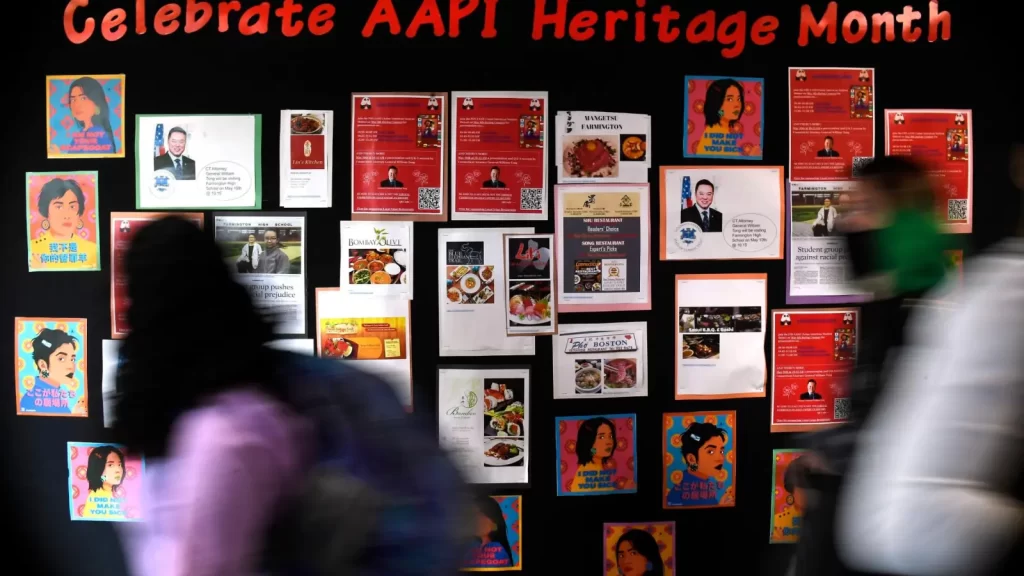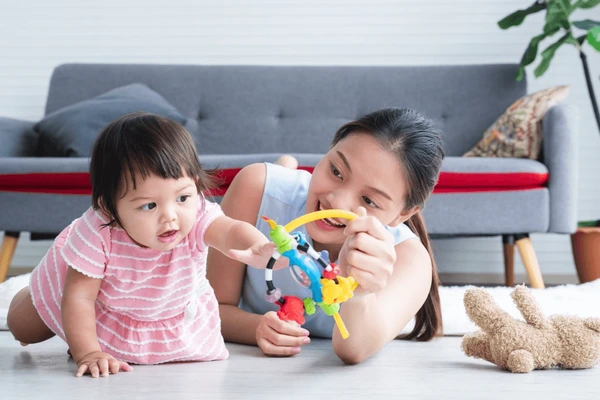Imagine if the farthest you’d ever gone was just the edge of your backyard.
Sounds limiting, right? Yet, that was normal for so many people in the past. Even today, most of us stick to what we know, rarely venturing beyond our usual spots.
Back then, staying close to home made sense. But now? The world is open, just waiting to be seen. We have a real chance to go out there, to let our kids explore, learn, and grow in ways that a classroom just can’t match.
Should we overlook this chance for cultural education, not only for ourselves but also for our children?
In an age when a short plane ride can open doors to diverse cultures, experiences, and knowledge, the importance of travel in education cannot be overstated.
Travel offers a powerful way to broaden horizons, enhance personal growth, and deepen our understanding of the world.
Here’s how teaching children to wander, wonder, and grow through travel can be a transformative experience for them.
The Benefits of Broadening Horizons Despite Financial Concerns
Travel can be a fantastic way to educate your kids outside the traditional classroom. As Dr. Shimi Kang says, “Travelling can teach children the value of appreciation and to treasure life’s everyday affordances.“
Look, I get it—travel isn’t cheap. A big trip might feel out of reach. But opening up your kids’ world doesn’t mean flying halfway around the globe.
Sometimes, a drive to the next town, a night in a tent, or a visit to a small museum can spark that same curiosity and wonder.
And in today’s world, that kind of understanding is everything.
If you have the chance to travel, go for it!
Even a short weekend getaway can mean so much. Sure, they might groan about another museum or roll their eyes at some historical site, but trust me—these are the things that stick.
They’re the moments that pop up later in unexpected ways.
They’ll remember standing in front of the Eiffel Tower, running their hands over old ruins, or tasting something totally unfamiliar.
These moments aren’t just fleeting memories—they become the building blocks of their character and worldview.
And isn’t that worth it?
Cheaper Alternatives to Long Distance Traveling
Drawing inspiration from Adventures from Scratch, you don’t need to embark on a grand journey to make travel impactful.
The book offers creative ideas to infuse adventure into everyday life, making even local trips an opportunity for growth.
- Set up treasure hunts
- Try a local food festival
- Visit a nearby historical site
These ideas can turn a simple day trip into a memorable adventure. These experiences can spark curiosity and encourage children to explore new interests.
Another excellent example of making the most of your resources can be found in Frances M. Thompson’s blog, As the Bird Flies, which emphasizes how travel is about more than just holidays.
In her post “How to Teach Travel to Kids,” she highlights the importance of teaching travel through home-based activities.
She suggests that even when international travel isn’t possible, you can create small adventures at home:
- Explore local parks
- Create travel-themed art or
- Use educational resources like maps and books to teach children about different cultures and places.
As she puts it, “Kids are actually equally enamored with the simplest journeys and the smallest adventures.”
My Own Traveling Experiences Growing Up in the USA
If we’re talking about my parents, they nailed the whole travel thing.
While my classmates were hitting up movie theaters and local water parks, I was soaking up the sights and sounds of Asia and Europe. And you know what? I would not trade those memories for all the roller coasters in the world.
Each trip was like opening a new book, with every corner offering something fresh and wild to discover. My parents believed that travel was the best education out there, and they made sure we got the full experience, whether we liked it or not!
My dad, who’s obsessed with history, turned every trip into a mini adventure through time.
He’d lead us around ancient ruins, pointing out details and stories that made me see things differently. His excitement was contagious—he’d practically glow as he explained the stories behind old temples, palaces, and cobbled streets.
In Thailand, we explored temples that felt like stepping into another world. In Japan, we walked down Kyoto’s old streets, where every stone seemed to hold a secret. Italy was a masterpiece in itself—every building, every statue felt like art.
And my dad? He wasn’t just a tour guide; he made history feel alive. He taught me to see beyond the tourist photos, to look closer, to notice the little things: the cracks in the ancient walls, the marks left by time and hands long gone.
Every place had a story, a heartbeat, and he helped me see it all. Those memories are more than just trips—they’re part of who I am.
A Traveling Memory I Won’t Forget
One vivid memory stands out: our trip to Angkor Wat in Cambodia.

As we explored the awe-inspiring temples with a local tour guide, we marveled at how such an extraordinary feat of human ingenuity could exist.
We were captivated by the guide’s explanations of the intricate construction techniques, the deep symbolism embedded in the design, and the historical significance of the temple.
It was more than just sightseeing; it was a deep dive into the marvels of human achievement and history.
Sure, at the time, I simply enjoyed the break from the usual family dynamic, but looking back, those trips were so much more than just vacations.
They were crash courses in empathy, cultural understanding, and the joy of discovering new things.
Those experiences have shaped my perspective, making me value the richness of different cultures and the importance of stepping outside one’s comfort zone.
Fast forward to today, and I will admit, I am not itching to hop on a plane with my family. Like most kids my age, I would rather hang out with friends, call the shots, and embrace spontaneity.
But those early adventures? They left a mark on me, shaping the way I approach new experiences and navigate the world around me.
The Lasting Impact: Travel as a Catalyst for Personal Growth
Traveling is so much more than ticking off bucket-list destinations. It’s about fostering curiosity, building connections, and seeing the world through fresh eyes.
When children travel, they learn to adapt to new environments, solve problems, and communicate across language barriers. These skills are invaluable and will serve them well throughout their lives.
Travel can strengthen family bonds. Shared experiences create lasting memories and deepen relationships. Even the challenges of travel, like navigating a new city or dealing with delayed flights, teach resilience and teamwork. Here’s a list of what traveling can do for you and your children.
1. Cultivating Global Citizens
Exposure to different cultures and environments helps children develop adaptability and openness.
When kids experience the “otherness” of various cultures, they grow up with a broader perspective, less likely to become insular or solipsistic.
Sheltering them from the diverse realities of the world can lead to a narrow worldview, but travel fosters a more inclusive and understanding mindset.
2. Encouraging Adventurous Eating
Traveling provides unique opportunities for children to try new foods they might not encounter at home.
A child who refuses to eat fish at home might be more willing to try fish tacos on a beach in Mexico.
Experiencing local cuisine is a fun and engaging way to learn about a culture from the inside out, expanding their palate and appreciation for different foods.
3. Enhancing Language Skills
Exposure to new languages, even if it’s just hearing them spoken, can significantly benefit children’s cognitive development.
Studies show that early exposure to a second language can help retain phonological structures, aiding in language acquisition later in life.
This linguistic diversity enriches their understanding and command of their native language as well.
4. Building Confidence and Independence
Travel challenges children to navigate unfamiliar environments, fostering independence and self-confidence.
Witnessing other children engage in new activities or navigating new settings encourages them to step out of their comfort zones.
These experiences build lasting confidence and influence their behavior and interactions long after the trip ends.
5. Developing Tolerance for Discomfort
Travel isn’t exactly comfortable—there’s the lumpy hotel bed that feels like a rock, the endless waiting around when a flight’s delayed, and don’t even get me started on the mosquito bites! But honestly, these little annoyances? They’re part of the magic. They teach kids patience in a way nothing else can. They learn to laugh off the things that don’t go right, to find adventure in the messy bits, and to roll with whatever the world throws their way. That ability to adapt and shrug things off? It’s a skill they carry with them, way beyond the trip.
Taking kids on a trip can feel like a circus act, but here’s the thing: each experience shapes them. When they try food that looks totally weird, or hear a language that sounds like a song, or walk into a place that’s nothing like home, something clicks. They start seeing the world as this huge, amazing place full of surprises. They get braver, more curious, and open to people and ideas that are different from what they know.
Making Travel Part of Family Life
Traveling with children can sometimes seem daunting, but the lifelong benefits make it worthwhile.

By incorporating travel into family life, parents can provide their children with valuable experiences that shape their character and worldview.
Here’s how to turn every trip into something meaningful, weird, and wonderful:
- Let Them Call Some Shots: Start right at the beginning—ask your kids where they’d love to go, even if it’s just some wacky roadside stop. Let them toss out their wild ideas. When they’re part of the plan, the whole thing feels more like an adventure you’re all diving into together. Suddenly, it’s not just a trip; it’s their trip, too.
- Embrace the Oddball Local Stuff: Forget the fancy stuff. Check out the weird museum down the road, find a funky diner in the next town, or take a walk somewhere you haven’t been. Sometimes, the strangest, most unexpected places leave the biggest impact. These are the spots where memories get made—where you laugh at things you never expected and maybe discover something new right next door.
- Collect the Little Bits and Pieces: Take the blurry photos, keep the crumpled maps, jot down the ridiculous things someone said on the way. Ask your kids what they remember, too. Later on, when you stumble across these little scraps, it all comes rushing back, way more vivid than any fancy souvenir.
- Ride the Waves When Plans Go Sideways: Things will go wrong. Count on it. Embrace it. Maybe you take a wrong turn and end up who-knows-where. Maybe it rains the entire time. Lean into these curveballs, because honestly? These are the moments you’ll remember. Show your kids how to laugh it off, shrug it off, and just keep going. It’s all part of the story.
- Get Curious About the World: Even a quick drive to a new place can spark something in a kid. Try the weird food, learn a funky phrase, ask someone about their favorite local legend. Show them that there’s a whole world outside their bubble. Let them get curious, get weird, and soak it in. Each little taste of a new place makes the world feel bigger, richer, and more open.
So, here’s the bottom line:
This isn’t about nailing the perfect trip. It’s about the late-night giggles, the snacks spilled in the car, the moments that pop up out of nowhere and stay with you. It’s about the random stuff that makes up the best memories, the stuff you couldn’t plan if you tried.
Travel with kids is messy. It’s unpredictable. It’s gloriously imperfect. But those little shared adventures, the tiny triumphs, the hiccups and surprises—those are gold. They become part of who your kids are, shaping the way they see the world and themselves in it.
So, pack the bags, grab too many snacks, and just go. Go wherever, and see what happens. There’s magic out there, in every little corner of the world, waiting to be found.
And trust me—the memories, the laughs, the lessons? They’ll stick with them forever.








